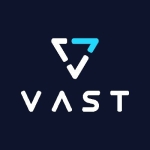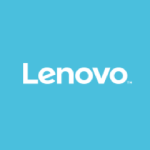What is our primary use case?
We're using NetApp AFF primarily for file and block storage. We have deployments for remote sites and our data centers, and we also use it for NAS file storage, both NFS and CIFS. We're also using it as a cloud backup, so it is like our tertiary spot for cold data or snapshots.
Our team is gaining experience with ONTAP, which works similarly in the cloud with Azure. As the business has more requests for spinning up new apps in Azure, we'll have the expertise to deploy that quickly in Azure natively with ONTAP stuff.
How has it helped my organization?
Our architecture has historically relied on RDMs, so AFF has enabled us to easily migrate from our old EMC PowerMax to the new NetApp. It's been pretty smooth. We have a lot of SAP servers in our environment, so performance is critical for us.
AFF is simplifying our operational model. We get a lot of requests from our DBAs for routine operations like quick snapshots, backups, or something related to storage. Those requests happen all the time. You could do that with PowerMax, but the process on NetApp is more straightforward and less prone to error. We're a small team supporting a global organization, and every minute we can shave off our routine operations does make a difference for us. It enables us to focus on major projects instead of everyday work.
I'm not in the weeds in terms of costs. One of my other colleagues handled that a little more than I did, but time is money, and we can respond faster to requests. That saves everybody's time, improving efficiency and productivity. You get angry when you're on the other side, making requests and waiting. You're like, "Why have they not finished it yet?" Your morale, effectiveness, and productivity can go down. That can spiral out of control. It's a ripple effect of the little things adding up to make a big difference, so that's where I would frame it in terms of cost-effectiveness.
We have quite a few active-active processes in our data center. We have primary and backup data centers and high-performing databases that require active-active workloads over a 10 gigabit WAN connection. And we are usually at about 1 millisecond latency at all times. So we're hitting it with lots of stuff, and it doesn't bat an eye. It's been very high-performing and easy to use.
What needs improvement?
I've only been using AFF for about a year now, so I don't have many criticisms. I wrote a lot of the automation for our initial migrations from PowerMax to NetApp and as well as automation related to refreshing our production systems. We clone a lot of our production systems to the testing or QA environments so our developers could use real production data in a safe environment.
I worked with the APIs quite a bit, including the REST API. We're working to move out from RDMs to do more VMDK-based disks in VMware, which will allow us to use SnapCenter for more efficiency. SnapCenter makes things even simpler than they already are. Additionally, once we are on VMDKs, we’ll be using the SnapCenter API, which I like even better than ONTAP's REST API.
The ONTAP APIs are good, but little things here and there are slightly different. That adds a little work on my end, but it's ultimately been pretty easy to work with. It's just the consistency of the REST API. About 95 percent of the operations working with the REST API are great, but then you have about 5 percent of things that are slightly different.
That 5 percent mostly come from response data being returned slightly differently than the ones you've already worked with. It's easy enough to work around but blows up in your face the first time you try it, so you inspect the response to see what changed. I would like it if they worked a little harder to get that a little more perfectly standardized. Thankfully the documentation is top notch, so if you aren’t sure of something specific you can just look it up.
What do I think about the stability of the solution?
NetApp AFF has been rock-solid. We've had it in production. We did have a node blip recently, but it auto-recovered. Support was automatically alerted, and they told us to check it out. Support had already identified the bug, and there was already a patch for it.
Buyer's Guide
NetApp AFF
April 2025
Learn what your peers think about NetApp AFF. Get advice and tips from experienced pros sharing their opinions. Updated: April 2025.
850,671 professionals have used our research since 2012.
What do I think about the scalability of the solution?
We purchased NetApp AFF with scalability in mind. We ended up going with the A900, which is a switched design, so expanding nodes out will be trivial. For some of our smaller sites, we use the A150, and we don't expect that we will need more. If necessary, we can buy some more A150s and expand without much fuss.
How are customer service and support?
I rate NetApp support 10 out of 10. NetApp AFF reduces support issues like performance tuning and troubleshooting. EMC didn't fail regularly, but EMC support has decreased in quality over the years, and getting satisfactory problem resolution has been challenging. That was one of the factors that started getting us to look at other alternatives. We certainly have had our fair share of implementation issues and little bugs here and there. We ran into a panic bug the weekend before flying over here [to NetApp Insight 2023]. But that was an auto-support case from NetApp and quickly resolved.
They were aware of the problem before we were. It automatically recovered. They found the bug for us and gave us a patch to use when we were ready. In most cases, it was pretty simple. NetApp support has been top-notch. I've not had any issues working with NetApp. They've been some of the best and brightest people I've worked with in my career.
How would you rate customer service and support?
Which solution did I use previously and why did I switch?
We previously used EMC PowerMax. The biggest reason for the switch is that we needed a cloud-ready, cloud-first solution. PowerMax is still a fine platform if you are committed to on-prem and have high-performance on-prem workloads and use cases. It could still be a perfect product for you. However, PowerMax may be limiting if you know your business requirements will take you to the cloud. That's where we were at. Our business was pushing us into the cloud, and we needed more of our workloads to be replicated in the cloud or cloud-native. PowerMax wasn't the right solution for that.
PowerMax is an aging platform so it doesn't have the flexibility to easily migrate into the cloud. We need our hot-tier data readily accessible on-prem and to be able to access cold storage in the cloud through Azure or whichever provider you want. But we use Azure. That was a key factor for us. We currently use cloud tiering to Azure for automated cold storage processes (mainly for file level data) and we are still exploring additional use cases for future and expanded operations.
How was the initial setup?
We did a six-month proof of concept and put it through its paces. We had a cluster in our primary and backup data centers. We tested out SnapMirror Business Continuity quite thoroughly. That was a new technology for us, and it's still fairly new in its own right. We even did some automation in the proof of concept where we built out a process that explored what our refresh process would look like on NetApp. We were able to bang that out in about three days. It was easy. I was involved with that from day one.
What about the implementation team?
We partnered with CDW during implementation. They've been a fantastic value add for us. We also worked with a rep from NetApp, but we met a lot of NetApp people and CDW people. Both companies brought deep knowledge and expertise. We had a long list of questions that they answered to our satisfaction.
What was our ROI?
I wouldn't be able to quantify the ROI in dollars and cents, but we've seen improvements in terms of saving time and increasing our effectiveness. My background is in virtualization and networking. I was new to storage when I started working with NetApp only a year ago. It has been easy to figure out. As we grew our infrastructure team, it has been easy to onboard them and get them up to speed, so it's much easier to realize the value we're looking for.
What's my experience with pricing, setup cost, and licensing?
When we bought NetApp, it was very reasonably priced. When you factor in the time savings, it's highly cost-effective.
What other advice do I have?
I rate NetApp AFF 10 out of 10. I would recommend AFF depending on your use case. PowerMax might be right for you if you're completely on-prem and have high-performance needs. You need to understand your business requirements and what your developers and DBAs need. It's crucial to figure out exactly what's driving the business. Plot out what the next year or five years will look like and ensure you're in a position to handle those needs.
Once you know what those needs are, you'll be able to ask NetApp or whatever vendor the right questions. Those should be tough questions you ask your vendor and you should take them to task. If they don't give you good answers, they need to figure something out because you don't want something that doesn't solve your problems. That's pointless.
If you have your list of requirements, and there's five things on the list, and storage solution A does two of the five. And you've got another one storage vendor B has five out of five. Are you really gonna buy two solutions if one has a specialty feature? Because maybe one does one better/is more performant? Or are you gonna buy the one that does five and handle everything. We had a very long list of complicated protocols and setups and NetApp checked every single box.
Disclosure: I am a real user, and this review is based on my own experience and opinions.
















